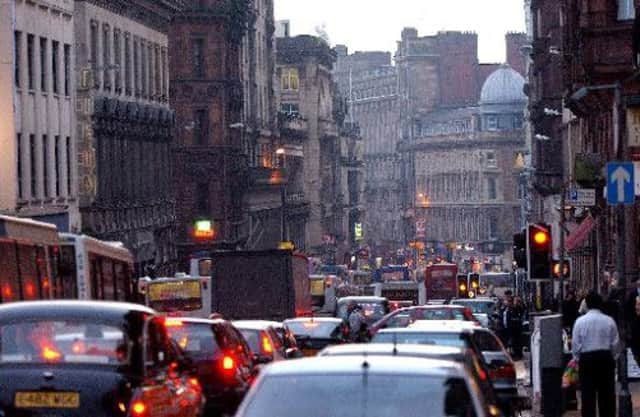Michael Kelly: Glasgow can take crime figures on the chin


A few decades ago, such claims would have sent the city into paroxysms of rage at being again singled out as a target for bad stories. It would have also have been national news. Today, while there is still sensitivity internally, there is a more balanced reaction – especially from outside the city. The national television channels chose, rather, to focus on the fact that Lewisham in London is the most violent local authority area. Not surprising, given the study lists five London boroughs, Lewisham, Lambeth, Hackney, Newham and Tower Hamlets as the least peaceful zones in the UK.
There are problems associated with these kinds of comparisons. Police authorities define and report crimes in different ways. In Scotland – thanks to the SNP government – we have the opportunities to commit more crimes. Under the anti-football legislation, that defines the new crime of singing songs policemen don’t like to, at, from or anywhere near a football ground, we can be arrested for expressing opinions that go unpunished in the rest of Europe.
Advertisement
Hide AdAdvertisement
Hide AdI could not surmount many statistical problems when, in the 1980s, I tried to compare crimes rates in Glasgow with London, New York and Miami. Methods and the availability of data have improved enormously since then and a respected organisation such as the IEP will have tried for great accuracy. Nevertheless, other academics studying the same figures might well come to different conclusions.
Already a number, such as Professor Marian Fitzgerald of the University of Kent, have voiced concerns over the way the study was conducted, particularly the base year, 2003. Due to changes in definition, crime figures artificially peaked in that year. A greater difficulty for me is not the quantitive analysis, but the qualitative one. Any examination of relative peacefulness would surely distinguish between the riots that London, Birmingham, Bristol and Manchester experienced in 2011 when nothing so explosive happened in Glasgow.
With these caveats, the report as a whole is good news for the United Kingdom. Rates of murder and violent crime are falling more rapidly in the UK than in many other European countries and many local authorities show “peacefulness” rates increasing faster than anywhere in Europe. This country, including Glasgow, is leading the way in reducing these worst kinds of crime.
For Glasgow, rather than its actual ranking, the most important lessons can be learned from the factors that contributed to the UK’s improvement. For one thing, less violence was not connected to the number of police officers. That number per 100,000 of the population fell – not rose – across the UK generally. So, we can dismiss the gloomier aspects of this report as a call for more “Bobbies on the beat”, the persistent cry of police unions.
However, better policing, along with more use of new technologies, did help. Is Glasgow up to speed on that? Recently, Police Scotland announced it was targeting motoring offences. In terms of cost/benefit analysis that may make sense because of the high number of deaths and serious injuries on our roads, but I doubt whether it would be the popular priority. Joe MacPublic would much rather see gangs and drug dealers brought to book.
Again, the Scottish Government has instructed police to concentrate on football-related offences. With reducing police numbers, this must affect resources devoted to serious and organised crime. I have never been a denier when it comes to Glasgow’s violent side. I hear too much anecdotal evidence that suggests there are areas of the city that have deteriorated in terms of public safety, areas where it is ill-advised to walk alone at night. So, it is a challenge that has to be addressed again – with vigour. Thankfully, this study supports the conclusions of other similar international studies including the US Peace Index. The chairman of the IEP, Steve Killelea, is in no doubt about the implications. These studies “show that poverty and economic opportunity are significantly associated with peace”. He calls for greater emphasis to be placed “on programmes that tackle poverty and related issues, such as access to education and economic opportunity”.
There has been a recognition in Scotland that these are the solutions. And improvements have been made – witness the investment going into the deprived East End to support the 2014 Commonwealth Games. However, as it has again been demonstrated that Glasgow has a greater share of these urban problems than anywhere else in Scotland, it is up to the Scottish Government to revise its policy toward the local authority.
Glasgow has seen its share of local government financed reduced, while others have seen theirs increase. That make no sense when the conclusions on the causes of crime demand that more money is spent on reducing poverty, creating employment and, in general, to attack the depressing environments and lifestyles of people who are then forced into crime.
Advertisement
Hide AdAdvertisement
Hide AdThis expenditure is socially necessary because of the public good it will do for these people. It is also good for those who otherwise might develop a fear of living here. Fear of violence is greater than the reality. According to another part of this study, 17 per cent of Britons think they will be a victim of violent crime, but fewer than 4 per cent will experience it.
The sensationalising of reports such as this do not help quell these fears. Glasgow’s experience of the past few years of changing its image, improving its physical structure and building an international visitor industry means that it can cope better with the occasional shot of bad publicity such as this. Instead of raging at the unfairness of it all, the government and city can take positive steps to make things better.